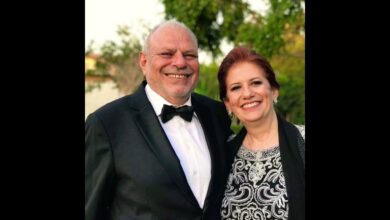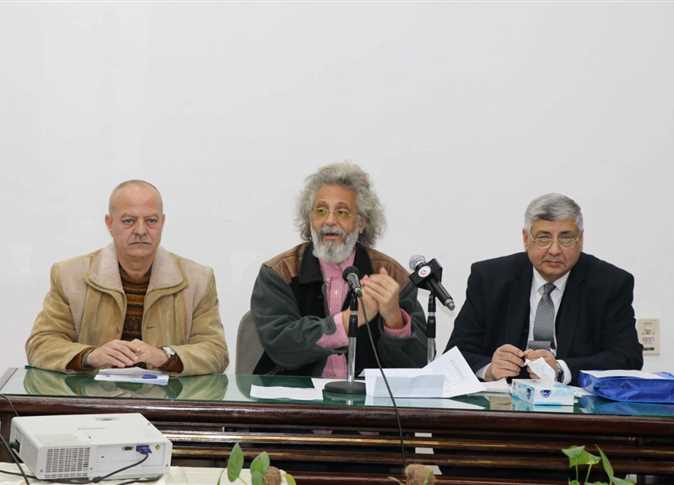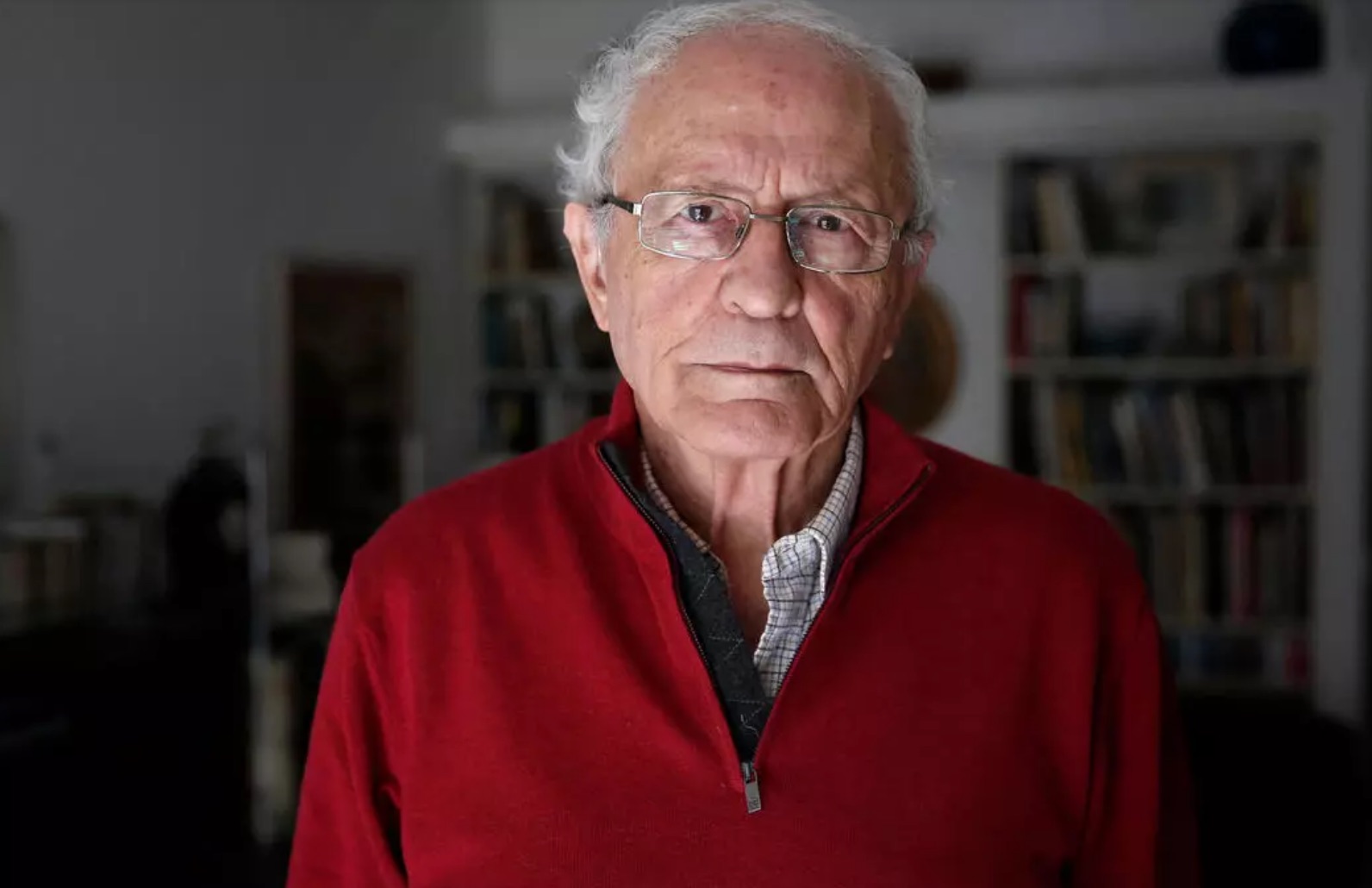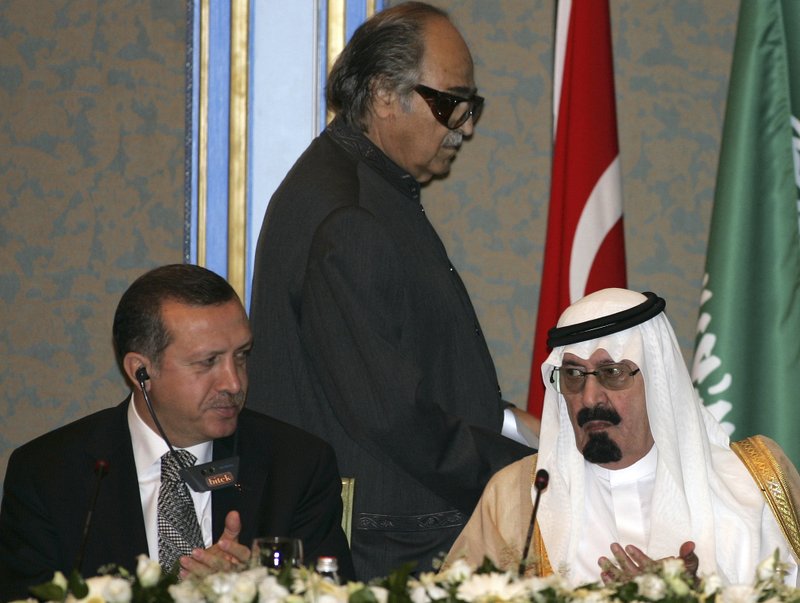Pope Shenouda III was born Nazeer Gayed in August 1923 to a conservative Christian Family. By his teens, he was heavily involved in the Sunday School movement, which encouraged the return of religious education programs in Coptic communities.
In 1949, he completed his undergraduate studies in history at Cairo University. Upon graduation, he joined the Coptic Orthodox Seminary, becoming a faculty member after ordination.
In July 1954, he became a monk and later, a monk priest. In 1962, he was appointed by Pope Cyril VI as bishop of Christian Education and President of the Coptic Orthodox Theological Seminary. He was given the clerical name Shenouda then, after the Coptic saint and author, Saint Shenouda the Archimandrite.
Early on in his clerical career, he called for the unity of the Coptic community around the church. Not long after taking on his education responsibilities, he successfully mobilized thousands of youths around this vision. Each Friday, he delivered a lesson in the cathedral on daily matters such as dating, studying and family planning.
His sermons attracted thousands of Copts each week. He was also known for his radical views and his attempts at politicizing the church since first entering the clergy. In his speeches, he dared to hint at criticism of then-President Gamal Abdel Nasser, at a time when his regime was held up as infallible.
In 1971, he was elected as the 117th pope of Alexandria and Patriarch of the See St. Mark.
His ascent to the highest religious position within the Coptic community coincided with the rise of Anwar Sadat to the presidency.
Soon after Shenouda’s papal ordination, he began to deviate from his predecessor's passive approach toward the ruling regime. He adopted a radically confrontational discourse in response to Sadat's policies that he said had allowed for the resurrection of Islamist groups.
Upon his ordination, Shenouda accused the state of discriminating against Copts on personal status matters, government appointments and the construction of churches. In the meantime, he openly opposed Sadat's "religiosity-based" policies.
In late 1981, Sadat put him under house arrest at the Monastery of Saint Bishoy where he remained for almost three years. This isolation experience appeared to leave a lasting impression on Shenouda, prompting him to check his formerly aggressive approach. After his release in 1985, Shenouda adopted a rather quiescent manner towards former President Hosni Mubarak's regime.
That was, until the 2010 parliamentary elections, when the pope reportedly cast his ballot in favor of the Wafd opposition party rather than Mubarak's National Democratic Party. Some Coptic intellectuals said that the Pope's choice on the ballot signaled a new era for relations between the regime and the church.
They said the NDP's failures in protecting Copts or preventing sectarian attacks on the Christian minority might have motivated Shenouda to withdraw his support.
But the Shenouda-led church did not take its dissent any further after the 25 January revolution broke out last year. Rather, Shenouda repeated his support of Mubarak during the 18-day uprising and most churches discouraged Copts from taking to the streets. Many Copts expressed frustration at the Church’s intractable support for Mubarak.
Secular Coptic intellectuals who insisted that divorce regulations be eased and that the mechanism for electing the next pope be amended also challenged Shenouda. They argued that the electorate should be expanded and that the draw be abolished.
In the last step of electing a Coptic pope, a blindfolded child chooses which of the top three candidates will take the position. Critics say the practice is outdated and undemocratic.
Under Shenouda’s tenure, the Coptic Church spread in the West, especially in the United States where the number of Coptic churches jumped from four in 1971 to over 100 at the time of his death. The pope also established branches of the Coptic Seminary in America, Australia and the United Kingdom.
Under the church's bylaw issued in 1957, the next pope shall be elected by bishops, former and current Coptic cabinet members and MPs, Coptic notables, and Coptic newspaper owners and editors. Once the vote is completed, a blindfolded child will choose the pope from the three candidates with the highest number of votes. Candidates must be at least 40 years old and have spent at least 15 years in monastic life.




